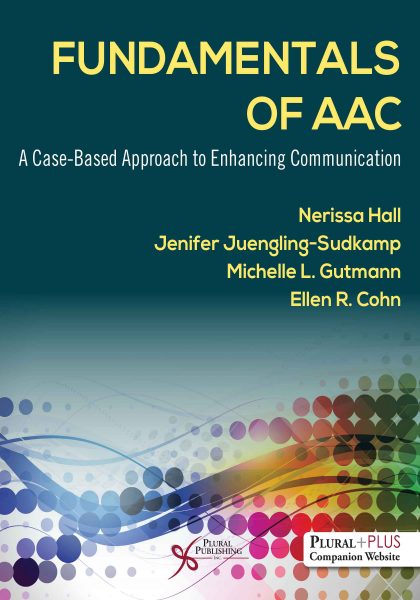About The Book

Intervention for Toddlers with Gross and Fine Motor Delays: Practical Strategies was created out of concern for the increasing number of children identified with developmental language disorders, including those with autism spectrum disorder, and the lack of adequate resources for them. This manual addresses gross and fine motor skills, and activities of daily living (ADLs) for toddlers between the ages of 0 and 3 years. Children with developmental disabilities often have difficulties in or uneven development of gross and fine motor skills. These delays have a related effect on the acquisition of daily life skills. The activities in this manual for building gross motor, fine motor, and ADL skills encourage sensory stimulation. Sensory integration skills, or a child’s ability to integrate sensory stimulation from his or her environment, are automatically targeted in the activities. The activities can be used in a wide variety of settings. They can be used in the therapy rooms of speech-language pathologists (SLPs), preschool classrooms, daycare settings, and children’s homes. The activities are especially ideal for professionals who conduct home visits to provide intervention in children’s natural, daily settings.
This manual is intended to guide the therapist or caregiver in selecting the target skills that a child should be trained in. The lesson plans outline the activities that need to be undertaken to elicit specific responses from children and establish a range of developmental skills. The simple lesson plans are intended to get the therapist or caregiver started on the process of stimulating the children in each of the domains that they need help in, at their current level of functioning. The first section of this manual addresses the basic gross motor skills that children acquire. These basic skills form the foundation of the child’s further motor growth. The second section deals with fine motor skill development. The lesson plans included here sensitize the therapist or caregiver to the basic fine motor skills that a child needs to learn at this stage. The third section addresses mastering the activities of daily living. The lesson plans that are included in this section are designed to help the child progressively take care of basic needs with increasing independence.
Also included are “Tech Tips” with recommended YouTube videos, websites, Pinterest sites, and other online resources. These online resources provide the therapist or caregiver with excellent ideas for products and practical intervention strategies that can be used for a variety of purposes when serving young children with special needs.
About The Authors
Prathibha Karanth, PhD, received her MSc (1971) and PhD (1981) from the All India Institute of Speech & Hearing (AIISH) in India. For 25 years, she worked on neurogenic communication disorders in adults and children at the National Institute of Mental Health and Neuro Sciences and AIISH. In 2003, she set up the nonprofit Com DEALL Trust to support the Communication DEALL Early Intervention Program, developed by her in 2000, now scaled up to over 20 units across India. She is associated with academic institutions such as SRCISH and NIAS in Bangalore and serves on scientific advisory committees of the Government of India and other academic institutions.
Dr. Karanth has published over 20 books and manuals and over 80 scientific papers/book chapters, and she has made over 300 presentations. She is the series editor for CommunicAids, a resource provider for those with communication disorders, and has also served as an editor for many professional journals. She is the recipient of several awards and grants and was twice president of the Indian Speech & Hearing Association. For more details, visit communicationdeall.com and academia.edu.
Celeste Roseberry-McKibbin, PhD, CCC-SLP, received her doctorate from Northwestern University. She is a Professor of Communication Sciences and Disorders at California State University, Sacramento. Dr. Roseberry is also currently a part-time itinerant speech pathologist in San Juan Unified School District, where she provides direct services to students from preschool through high school. She has worked in educational and medical settings with a wide variety of clients ranging from preschoolers through geriatric patients. She serves homeless persons in her community through direct work on the streets.
Dr. Roseberry’s primary research interests are in the areas of assessment and treatment of culturally and linguistically diverse students with communication disorders as well as service delivery to students from low-income backgrounds. She has over 70 publications, including 15 books, and has made over 300 presentations at the local, state, national, and international levels. Dr. Roseberry is a Fellow of ASHA and winner of ASHA’s Certificate of Recognition for Special Contributions in Multicultural Affairs. She received the national presidential Daily Point of Light Award for her volunteer work in building literacy skills of children in poverty. She lived in the Philippines as the daughter of Baptist missionaries from ages 6 to 17.
Priya James, MS, CCC-SLP, has over a decade of experience working with special need children and families. Priya’s varied experiences include working with preschoolers through high schoolers in the public / private schools, juvenile hall, and postsecondary and vocational schools. She has also worked with adult patients with neurologic disorders and injury.
Priya has conceptualized, designed, and implemented a technology platform for special education management in public schools. She is a consultant to tech companies developing products for special needs children. Priya has a private practice in Mountain View, California, and currently focus on building a holistic and parent-involved early intervention program for developmentally delayed children of ages 3 to 7 years.
Table Of Contents
Background and Introduction
Directions for Use
Motor Skills (Gross and Fine) and Activities of Daily Living
Do’s and Don’ts
Acknowledgments
Project Team
Lesson Plans
Part I. Gross Motor Skills
Part II. Fine Motor Skills
Part III. Activities of Daily Living
Conclusion
Glossary
Appendix I. Online Resources for Practical Products and Intervention Strategies
Appendix II. Rhymes
Appendix III. Fun Activities to Strengthen Hand and Finger Strength and Dexterity for Improved Fine Motor Skills
Only logged in customers who have purchased this product may leave a review.






Reviews
There are no reviews yet.